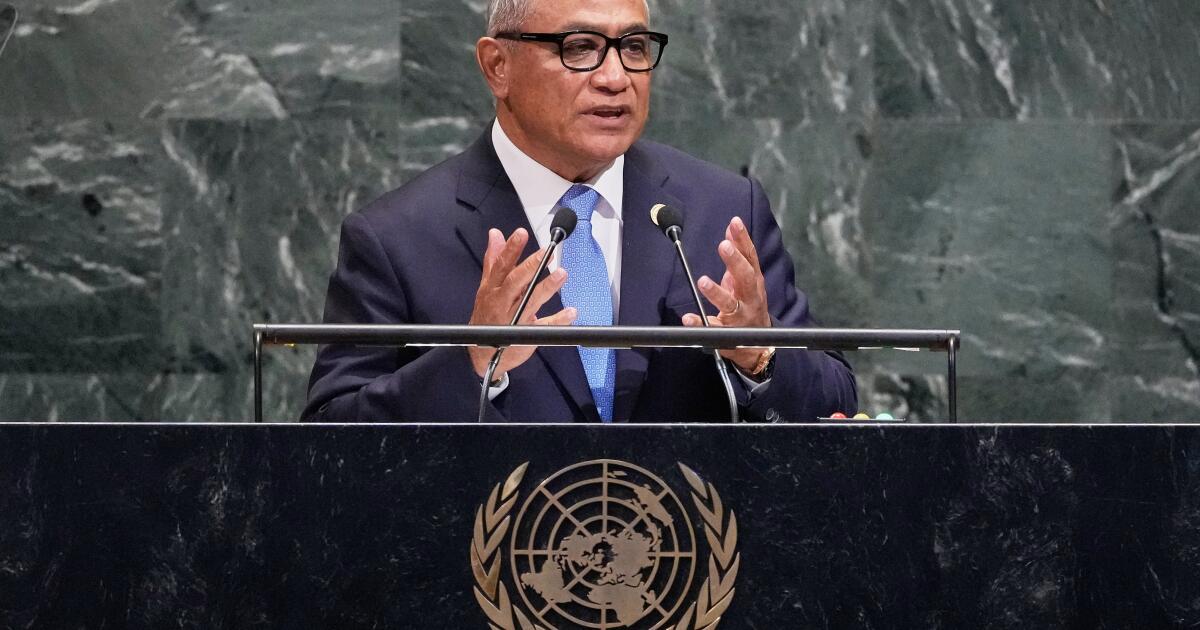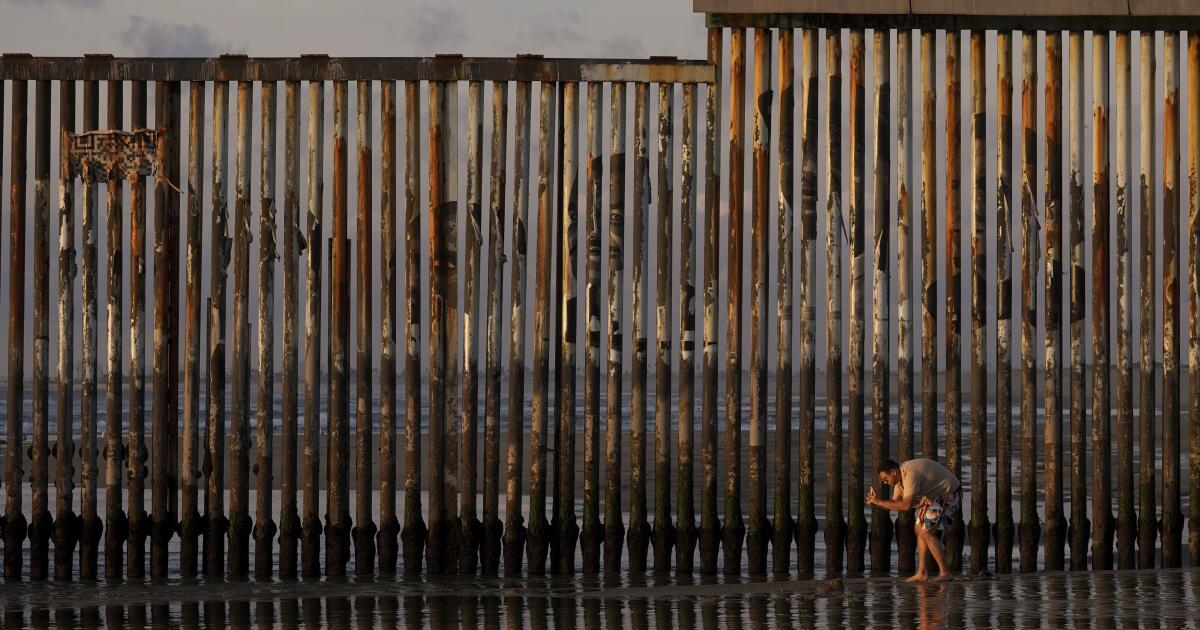Belize signs ‘safe third country’ agreement as part of Trump’s immigration crackdown
MEXICO CITY — The small Central American nation of Belize has signed a “safe third country” agreement with the United States, the two sides said on Monday, as the Trump administration seeks to ramp up deportations and dissuade migration north.
What the agreement entails wasn’t immediately clear, but it comes as President Trump has increasingly pressured countries in Latin America and Africa to help him carry out his immigration agenda.
The deal appears to be similar to one with Paraguay announced by the U.S. State Department in August that included a “safe third country” agreement in which asylum seekers currently in the U.S. could pursue protections in the South American nation.
In Trump’s first term, the U.S. signed several such agreements that would instead have asylum seekers request protections in other nations, like Guatemala, before proceeding north. The policy was criticized as a roundabout way to make it harder for migrants to seek asylum in the U.S. and was later rolled back by the Biden administration.
Earlier this year, Panama and Costa Rica also accepted U.S. flights of hundreds of deportees from Asian countries – without calling the deals “safe third country” agreements – and thrusting the migrants into a sort of international limbo. The U.S. has also signed agreements, such as deportation agreements, with war-torn South Sudan, Eswatini and Rwanda.
The Belize government said in a statement on Monday that it “retains an absolute veto over transfers, with restrictions on nationalities, a cap on transferees, and comprehensive security screenings.”
The government of the largely rural nation wedged between Mexico and Guatemala reiterated its “commitment to international law and humanitarian principles while ensuring strong national safeguards.” No one deemed to be a public safety threat would be allowed to enter the country, it said.
On Monday, the State Department’s Bureau of Western Hemisphere Affairs thanked Belize in a post on X, calling the agreement “an important milestone in ending illegal immigration, shutting down abuse of our nation’s asylum system, and reinforcing our shared commitment to tackling challenges in our hemisphere together.”
The decision prompted fierce criticism from politicians in Belize, who railed against the agreement, calling it a “decision of profound national consequence” announced with little government transparency. The agreement must be ratified by Belize’s Senate to take effect.
“This agreement, by its very nature, could reshape Belize’s immigration and asylum systems, impose new financial burdens on taxpayers, and raise serious questions about national sovereignty and security,” Tracy Taegar Panton, an opposition leader in Belize’s parliament, wrote on social media.
She noted fierce criticisms of human rights violations resulting from similar policies carried out by both the U.S. and Europe.
“Belize is a compassionate and law-abiding nation. We believe in humanitarian principles. But compassion must never be confused with compliance at any cost. Belize cannot and must not be used as a dumping ground for individuals other countries refuse to accept,” she wrote.
Janetsky writes for the Associated Press.

